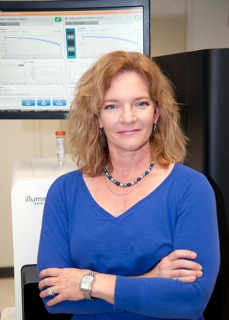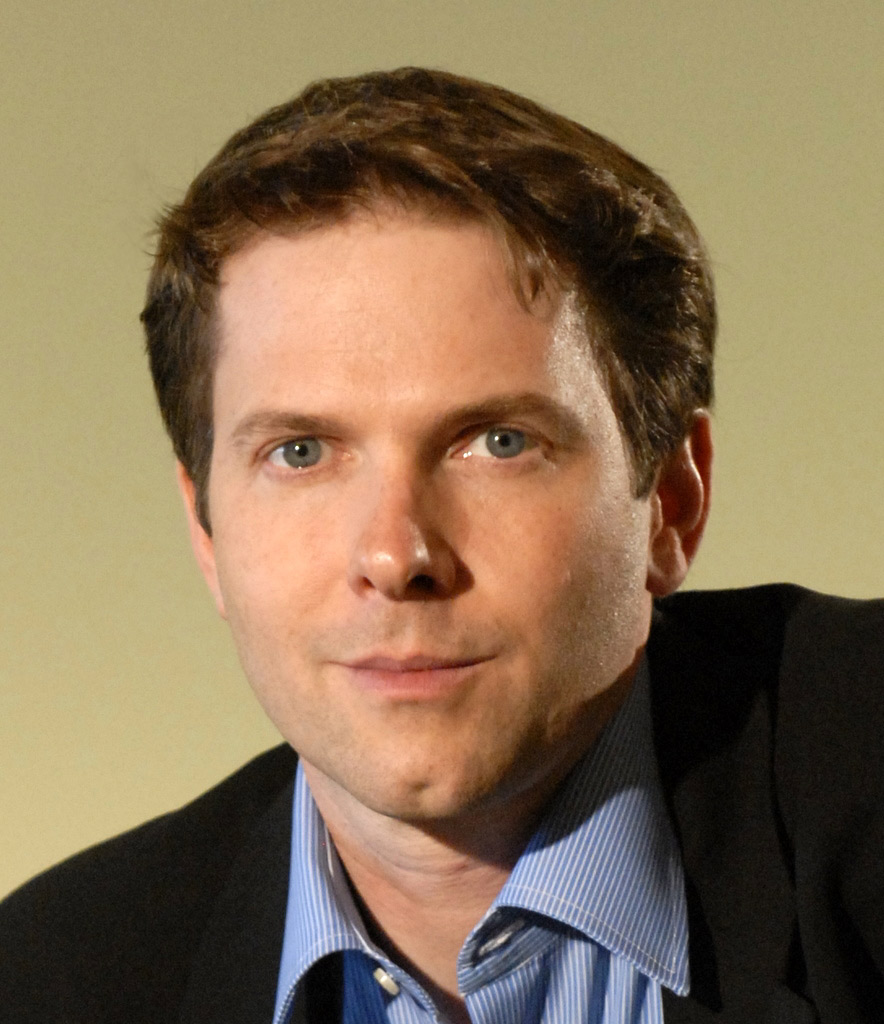Keynote Speakers: Elaine Mardis and James Heywood

Keynote Speakers: Elaine Mardis and James Heywood |
PSB 2012

|
 |
Elaine Mardis Professor of Genetics and Molecular Microbiology Co-director, The Genome Institute at Washington University School of Medicine |
Abstract:
While the cost of generating data for DNA sequencing-based experiments has fallen dramatically over the past four years, due to the introduction and refinement of next-generation sequencing instruments, the cost of data analysis has escalated. In fact, although lower in throughput, newer third-generation instruments only contribute to this phenomenon, because they have faster run times and hence more duty cycles per year than next-generation sequencers. This glut in data analysis, coupled with the myriad and different ways that data can be analyzed for a given experiment, have coupled to revitalize computational biology and algorithm development, statistics and mathematical modeling of data. In our studies of cancer genomes and transcriptomes, we have combined experimental techniques with mathematical and statistical approaches that refine the primary data analysis, and extend our ability to interpret the data to address fundamental questions about tumor biology and evolution. I will provide examples from our work and details of our experimental analysis approaches.
Biography:
Dr. Elaine Mardis graduated Phi Beta Kappa from the University of Oklahoma with a B.S. degree in zoology. She then completed her Ph.D. in Chemistry and Biochemistry in 1989, also at Oklahoma. Following graduation, Dr. Mardis was a senior research scientist for four years at BioRad Laboratories in Hercules, CA.
In 1993, Dr. Mardis joined The Genome Institute at Washington University School of Medicine. As Director of Technology Development, she helped create methods and automation pipelines for sequencing the Human Genome. She currently orchestrates the Center's efforts to explore next generation and third generation sequencing technologies and to transition them into production sequencing capabilities.
Dr. Mardis has research interests in the application of DNA sequencing to characterize cancer genomes. She also is interested in facilitating the translation of basic science discoveries about human disease into the clinical setting.
Dr. Mardis serves on several NIH study sections, is an editorial board member of Genome Research, and acts as a reviewer for Nature and Genome Research. She serves as chair of the Basic and Translational Sciences Committee for the American College of Surgeons Oncology Group, an NCI funded cooperative group. She serves on the scientific advisory boards of Pacific Biosciences, Inc. and Edge Biosciences, Inc. Dr. Mardis received the Scripps Translational Research award for her work on cancer genomics in 2010, and was named a Distinguished Alumni of the University of Oklahoma College of Arts and Sciences for 2011.
 |
James Heywood Co-Founder and Chairman, PatientsLikeMe |
Abstract:
Is it time to revisit the rules and boundaries of human subject research? Are advances in discovery and information technology breaking the assumptions that previously required the double blind trial with accompanying ethics and regulations? Have 20th century mechanisms meant to protect research subjects, consent, coercion, and access or denial of access, become tools that repress patients in the 21st century?
If we believe in the principal that "all are created equal," who should design partnerships between patients, doctors and researchers in the modern age? Who should control the information and how should it be used? Can we move from trials to continuously learning in a way that simultaneously protects patients and improves patient care?
Imagine a clinical system built on individual agency and empowerment directed by the patient. What would be its principals and goals and what would be the rules for all that are part of it?
Biography:
An MIT engineer, James Heywood entered the field of translational research and medicine when his brother Stephen was diagnosed with ALS in 1998 at the age of 29. With experience in design, information technology, systems modeling, neuroscience and industrial engineering, Heywood brings a unique perspective to drug discovery and medicine. The scientific and business innovations he has developed during his career are transforming the intersection of biotechnology and pharmaceutical development, personalized medicine and patient care.
In 1999, shortly after Stephen was diagnosed, Heywood founded the ALS Therapy Development Institute (ALS TDI), the world's first non-profit biotechnology company, where he served as CEO until 2007. Pioneering an open research model and an industrialized therapeutic validation process, Heywood led ALS TDI to become the world's largest and most comprehensive ALS research program. The comprehensive in-vivo validation program Heywood developed was unable to replicate any of the published preclinical studies of the field that led to human trials calling into question the standards that allowed many drugs to be tested on patients. ALS TDI continues to grow and runs large-scale discovery and informatics program focused on finding an effective pathway for treating ALS.
Today, Heywood is the chairman of PatientsLikeMe, where he provides the scientific vision and architecture for its patient-centered medical platform. He co-founded the company in 2004 with his youngest brother, Benjamin, and friend, Jeff Cole. Named one of "15 companies that will change the world" by CNN Money, PatientsLikeMe is a personalized research and peer care platform that allows patients to share in-depth information on treatments, symptoms and outcomes. This novel open model allows clinicians, providers and the pharmaceutical industry to better understand diseases and the patient experience. Patients improve their care while actively partnering with industry to accelerate and influence the development of new treatments and biomarkers.
In 2009, Heywood and a small group of thought leaders founded HealthDataRights.org, an organization that asserts a new patient right to access a copy of all of their medical data in a computable form. This has become a new voice for patient centricity in the healthcare debate.
A published author, frequent speaker, media pundit and active investment advisor, Heywood speaks at business, government and academic conferences around the world, including TEDMED, the Milken Global Conference, Health 2.0, Gov 2.0, Personal Democracy Forum, Institute of Medicine and the NIH. He is a member of the CDC's National Biosurveillance Advisory Subcommittee and has testified on privacy and social policy before the U.S. Department of Health and Human Services (HHS) and the U.S. Food and Drug Administration (FDA).
Heywood's work has been profiled in the New Yorker, New York Times Magazine, BusinessWeek, 60 Minutes, CBS Evening News, NPR, Science, and Nature. In 2009, he was chosen for WIRED magazine's "Smart List" and Fast Company's "10 Most Creative People in Healthcare." Heywood and his brother Stephen were the subjects of Pulitzer Prize winner Jonathan Wiener's biography, His Brother's Keeper, and the Sundance award-winning documentary, "So Much So Fast."
| Back to the main PSB page | Updated: October 18, 2011 |